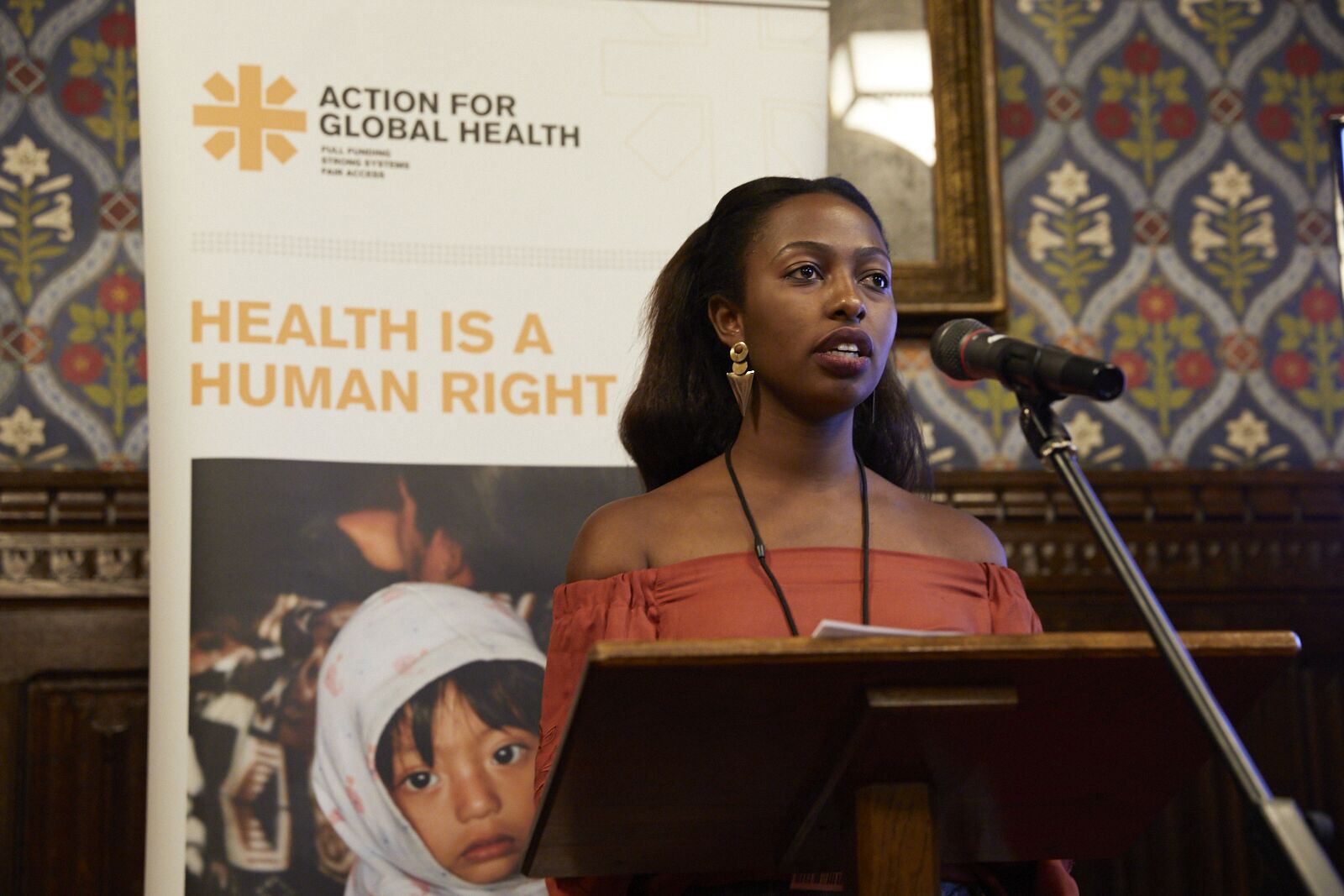
This is a guest blog by Youth Leader for Nutrition, Florence Sibomana.
Covid-19 has brought into sharp focus the pressure that health systems the world over are creaking under. While governments are rapidly trying to scale up emergency provision to deal with the pandemic, the crisis highlights the need to support interventions that increase the capacity of health systems in the long-run.
As a trainee medical doctor and with my personal engagement in community advocacy on nutrition, I have seen first-hand how malnutrition causes chronic and compounding problems for health systems.
To fully understand the problem, it is important to first understand the scale. Globally, over 20% of children are stunted. And in my country, Rwanda, the figure is almost double that. Globally, 45% of under-5 deaths are linked to undernutrition. For both children and adults, malnutrition is the main risk factor for disease worldwide.
Children suffering from stunting may never attain their full possible height and their brains may never develop to their full cognitive potential. A stunted child will be more susceptible to disease throughout their lifetime. Aside from the obvious health and wellbeing implications for the individual, the additional healthcare costs that stunting causes puts families under financial pressure, keeping many people trapped in poverty.
The human impact also has an effect on the nation. More poverty means less tax revenue. And more ill health means a less productive labour market and puts an additional strain on health systems.
There are of course many different social and environmental determinants that effect health. Some of these are trickier to address than others. But ensuring good nutrition during the crucial early years and through adolescence is something that can and must be achieved if we want our health systems and economies to be prepared for pandemics like Covid 19.
Malnutrition is a cross-cutting and cyclical issue. Some of the most impactful nutrition programmes are not, on the face it, all that focused on nutrition. For example, in Rwanda, 19% of stunted children are born from teenage mothers. This is because adolescent girls still need to grow themselves. And in many cases, they suffer from malnutrition, for example anaemia, which is caused by iron deficiency.
Therefore, in order to tackle malnutrition, we need to ensure young mothers and adolescents have access to sexual and reproductive health services. If we do this, we can avoid a situation whereby a new generation are being born stunted and potentially facing health problems throughout their life.
2020 was meant to be the year of Nutrition for Growth, a summit where governments from all over the world would make policy and financial commitments to end malnutrition. While Covid 19 has brought into question the feasibility of holding big global events, it is important we do not lose sight of what Nutrition for Growth was trying to achieve.
When governments from around the world come together and align their objectives and financing, we can make real progress in ending malnutrition. And when countries like the UK show leadership, it makes it easier for other countries, like Rwanda, to also pledge and to take political ownership of the issue of nutrition.
For that reason, whatever happens with the Nutrition for Growth summit, we must honour what it is trying to achieve. Malnutrition will not disappear by its self. And while governments are rightly focused on emergency provision at the moment, we must not lose sight of the long term goal – health systems and economies that are resilient and robust enough to manage pandemics like Covid 19. Good nutrition alone will not achieve that – but it is an important step – and one that we have the knowledge and resources to do something about.
About Florence Sibomana
Florence has recently completed her medial training at the University of Rwanda and has a passion for global health and social justice. As a Youth Leader for Nutrition, Florence is advocating for better nutrition policies in Rwanda and has spoken about the importance of nutrition at various global platforms, including at the SUN Global Gathering in Kathmandu and the UN General Assembly. Florence volunteers with the Rwanda Non-Communicable Disease Alliance, and Amazon Nutrition Cabinet. Through the Nutrition Cabinet she has been working on a campaign to prevent malnutrition and non-communicable diseases. Florence has undertaken advocacy work with the Medical Students Association of Rwanda as an advocate and peer educator on sexual and reproductive health issues and in 2015 coordinated events for World Aids Day. She is also the vice coordinator for the Rwanda village community promoter team with whom she is an advocate for social justice working with underprivileged communities from rural areas. She is a committed gender equality advocate and Girl Guide. Florence gave an inspiring speech as part of 2018’s UN General Assembly.